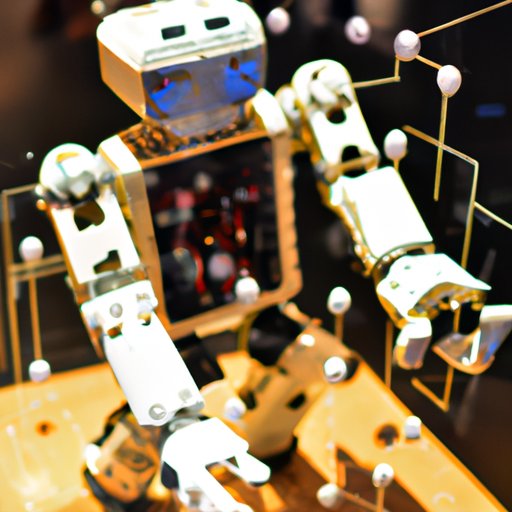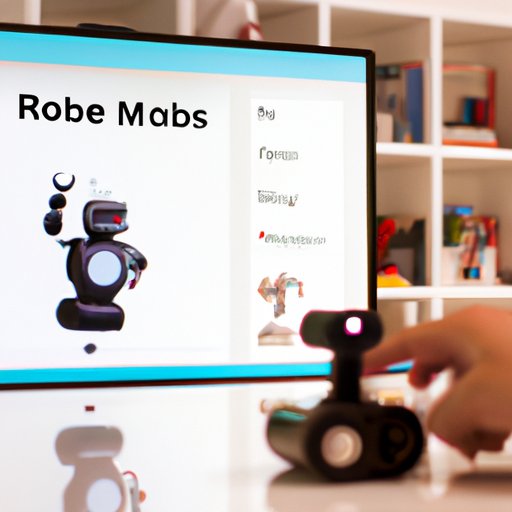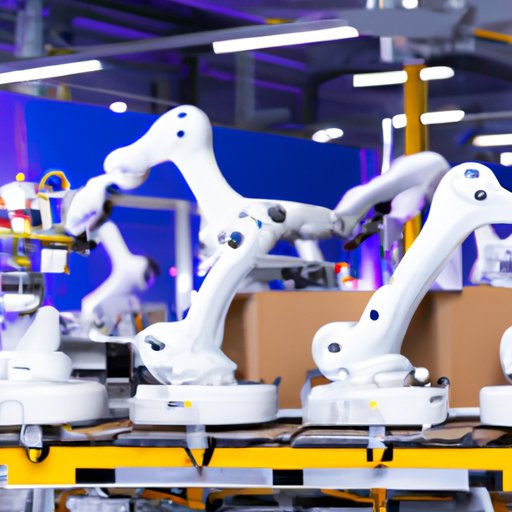Introduction
Robotics can be defined as “the branch of technology that deals with the design, construction, operation, and application of robots” (Oxford Languages, 2021). This article will explore the history and development of robotics, the benefits and challenges of robotics in the home and workplace, and the future implications of robotics for society.
Robotics: A Brief Overview
Robotics is an ever-evolving field of technology that has been around for centuries. Its main purpose is to automate tasks for humans, allowing them to do more with less effort. Robotics is used in many industries, such as manufacturing, healthcare, and transportation, to increase efficiency and accuracy. Robots are also becoming increasingly popular in the home, providing assistance with everyday tasks and chores.

Exploring the History and Development of Robotics
Robotics has its roots in Ancient Greece and Rome, where mechanical automatons were created to mimic human actions. Over time, these automatons evolved into more complex machines, eventually leading to the development of modern robotics. The first programmable robot was created in 1954 by George Devol, and since then, advancements in robotics have been made at a rapid pace. Today, robots are used in a variety of industries, from manufacturing to healthcare.

Robotics in the Home: Benefits and Challenges
Robots are becoming increasingly common in the home, providing assistance with everyday tasks such as cleaning, cooking, and shopping. According to a study conducted by the Pew Research Center, 45% of Americans believe that robots and computers will do much of the work currently done by humans within the next 50 years (Pew Research Center, 2017). There are many benefits to having robots in the home, such as increased convenience and efficiency. However, there are also some potential challenges, such as cost and security concerns.

Robotics in the Workplace: Automation and Efficiency
Robots have become commonplace in the workplace, providing automation and efficiency in a variety of industries. For example, robots are used in manufacturing to assemble products with precision and accuracy. They can also be used in healthcare to assist with surgery and other medical procedures. While robots can provide a number of benefits in the workplace, such as increased safety and productivity, they can also present some challenges, such as job displacement and privacy issues.
The Future of Robotics: Implications for Society
The advancement of robotics technology has the potential to have a significant impact on society. For example, robots could potentially be used to care for the elderly and disabled, as well as to carry out dangerous or difficult tasks. Additionally, robots could play a role in improving public safety by monitoring areas and responding to emergencies. However, there are also ethical implications to consider, such as the potential for robots to take away jobs from humans, as well as the potential for robots to be used for malicious purposes.
Conclusion
In conclusion, robotics is an ever-evolving field of technology that has been around for centuries. It is used in many industries, from manufacturing to healthcare, and is becoming increasingly popular in the home. Robotics has the potential to revolutionize the way we live and work, but there are also ethical implications to consider. As robots become more advanced, it is important to consider the potential implications for society and the ethical considerations involved.
(Note: Is this article not meeting your expectations? Do you have knowledge or insights to share? Unlock new opportunities and expand your reach by joining our authors team. Click Registration to join us and share your expertise with our readers.)
